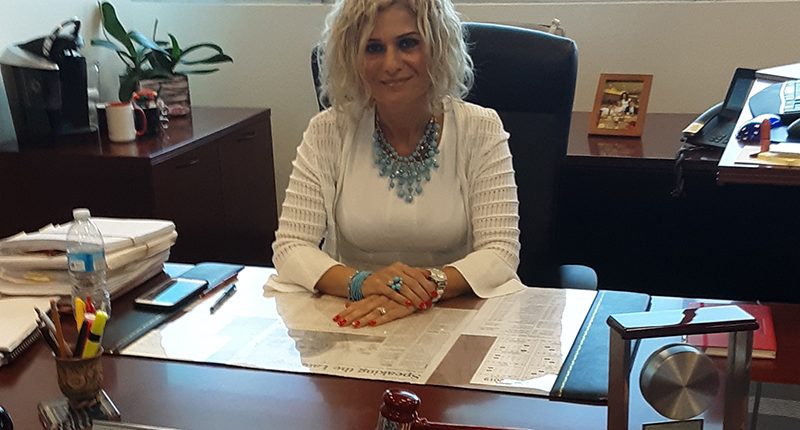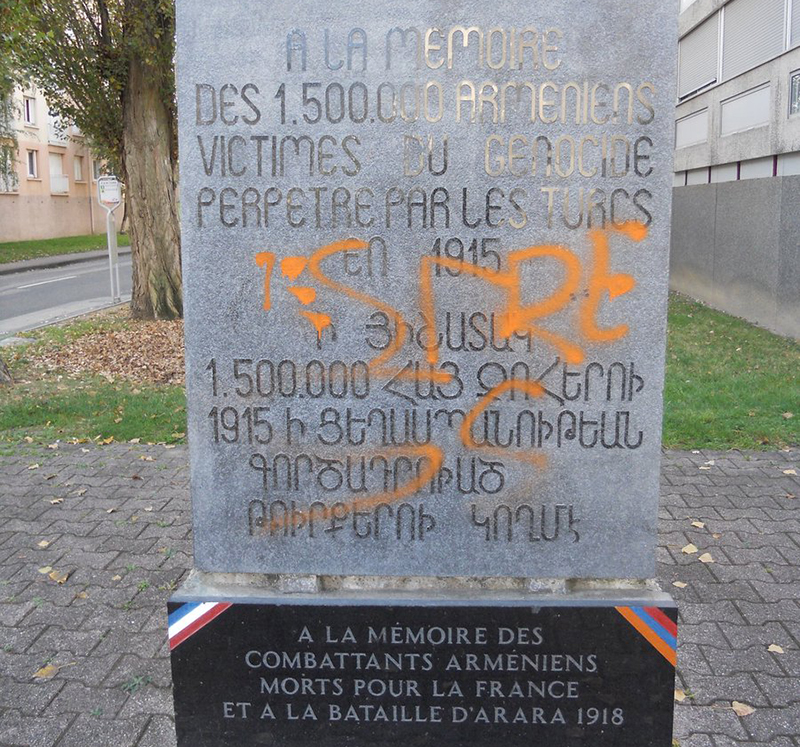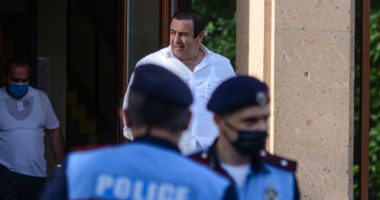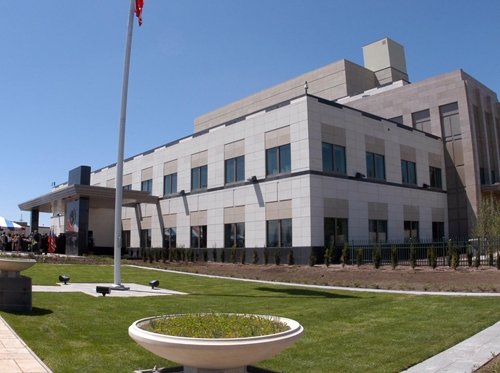Interview Conducted By Kevork Keushkerian
I was invited to meet with Los Angeles County Superior Court Judge Armenui Amy Ashvanian for an interview on Wednesday, July 31st in her chambers at the East Los Angeles Courthouse.
The interview was informative and eye-opening regarding the many challenges Judge Armenui has faced and overcome with determination and hard work.
Kevork: Good morning, your Honor. Can you introduce yourself to our community and share with us where you were born and when you moved to the United States?
Judge: Good morning, Kevork. I was born in the Soviet Republic of Armenia, and I immigrated to the United States with my parents when I was 17 years old. When I came to America, I did not know one word of English. Back in Armenia, the education I received all the way through High School was in Armenian. The second language having been in Russian and the foreign language in my school was French. I had to learn English and support my elderly parents.
Kevork: Where did you go to school to learn English?
Judge: I enrolled in the Glendale Unified School District solely to learn the language, because I had already received a High School Diploma from the Republic of Armenia, when it was still the Soviet Republic of Armenia. I learned the language well enough to get a job at the Bank of America, only a few months after I came to America.
Then I enrolled in the Glendale Community College and received my Associate Degree in Business Administration. After that, I received my Bachelor of Arts Degree in Business Administration from the American University of Hawaii.
Kevork: Which law school did you attend?
Judge: A B.A. in Business Administration was not enough for me, because growing up in Soviet Armenia and seeing injustices and corruption, it became my life’s passion to be a part of a system that makes a difference. I wanted to make a change in the world and that perseverance made me grasp every opportunity I could to be someone important. That opportunity was given to me by the Glendale University College of Law. I took my Law Degree in 2004 and passed the Bar. During that time, I was working at a law firm as a paralegal, but my Passion was to go into the criminal field.
Kevork: What did you do, before becoming a Judge?
Judge: I applied to the Los Angeles County District Attorney’s office and became a prosecutor. I worked there for fourteen years, from 2005 to 2018. Half of that time, I worked in the elite unit, which covers the hard core gang-related prosecution. This helped me learn about the community at large, including the victims, the defendants and the witnesses, who were all entrenched in the gang culture.
Shortly after I joined the District Attorney’s office, the US State Department had tapped me to assist them in overseas prosecution development and training in the now the Independent Republic of Armenia. I was both humbled and honored to have been offered that position and, since then, I have been working with the Republic of Armenia to reform their criminal justice system for almost 11 years. We are happy that the US Government is willing to train judges, law enforcement officials, and defense attorneys to have transparency in the system. I have also been working, in the last three years, with the government officials in the Republic of Artsakh to reform their judicial system.
Kevork: When did you become a Judge?
Judge: I applied for the position and I was fortunate enough to be appointed as Superior Court Judge by Governor Brown in Febraury of 2018. Now, I serve as a judge in the Superior Court of the County of Los Angeles in East Los Angeles. This was a dream come true, as I am the only immigrant born in Armenia to become a CA Superior Court Judge.
Kevork: Can you tell us more about your personal life?
Judge: Yes, I am happily married to my High School sweetheart, and we have two children.
Kevork: I understand that you also teach law classes. Can you tell me where?
Judge: Yes, for the last five years, I have been teaching at the Glendale University College of Law, my Alma Mater. I teach professional responsibilities for attorneys, criminal and constitutional procedures, and criminal prosecution as an elective. Besides teaching, mentoring young people has been a passion of mine.
Also, I became a volunteer coach at the AGBU Vatche and Tamar Manoukian High School in Pasadena and for the last three years, I have been teaching their mock trial team for constitutional right foundation and I am very happy to say that last year my team went all the way to the playoffs.
Besides, I mentor law students in the Armenian community and tell them that they could achieve anything, if they have the right mindset. I present myself as an example to them saying, if I could do it, then you could do it.
Kevork: Have you been back to Armenia?
Judge: Yes, I go a minimum of once a year, and since 2008, I have been back to Armenia on average twice a year. Every summer I try to take my kids there, because I want them to have that strong connection with Armenia. I have been very fortunate to have two children who have such strong ties to Armenia. I have also taken them to Artsakh. It has been highly educational for them to see how people live in the villages day-by-day, and how kids their age act. They come back with a different perspective of life. It has been a positive experience for them.
Kevork: What are your likes and dislikes about being a judge?
Judge: I keep telling everyone that this has been the most fulfilling job any one can have. If you really have passion and care for the system, and you want to make a difference in the system, then this is the job for you. Having this job for the last year and a half is a blessing for me. I love coming to work every day, not being an advocate for one side or the other, but listening to both sides and using my discretion, based on the law and following the constitution. I have nothing negative to say about this job.
Kevork: Do you encourage our lawyers to become judges?
Judge: Absolutely. We do not have enough Armenian-American judges on the bench. Every opportunity I have, such as mentoring or giving panel discussions, I take the time to say to graduates of law school, or to lawyers: don’t ever say no or limit yourselves. We should have a diverse population of judges on the bench.
Kevork: What is the right path for obtaining a judgeship?
Judge: There is no one formula or path for judgeship. I teach professional responsibilities at the Glendale University College of Law, and when students ask me that question, I tell them it is your reputation and credibility that matters the most. An honest and hard working lawyer who has respect for the court, the litigants, and the defendants are the key for success. Also, another important aspect is participating in works, such as community service, pro bono work, and community outreach.
Kevork: To be honest with you, I was impressed with your presence at the last two Armenian community outreach meetings with Congresswoman Judy Chu and Los Angeles County Supervisor Kathryn Barger.
Judge: I never miss an opportunity to attend those meetings, because it is very important to me to be a part of the community. I was very lucky to see there some of my mentees, who were inspired by me. It is inspiring for me to see that I was able to make a difference.
Kevork: What is your final message to our community?
Judge: We have a great and large Armenian community in Los Angeles, full of people who are very successful. We do a lot of good for our youth, for example, through the Armenian Bar Association. My message would be: don’t give up, work hard, have confidence in your ability, and don’t be discouraged. If you need help, find someone you really connect with. You can reach the stars with hard work and keep doing what you want to do. Don’t be pressured to do what your parents want you to do. This helps the future generations of our community.
Kevork: Thank you Judge, Ashvanian, and good luck in your future endeavors.
Judge: Thank you.










